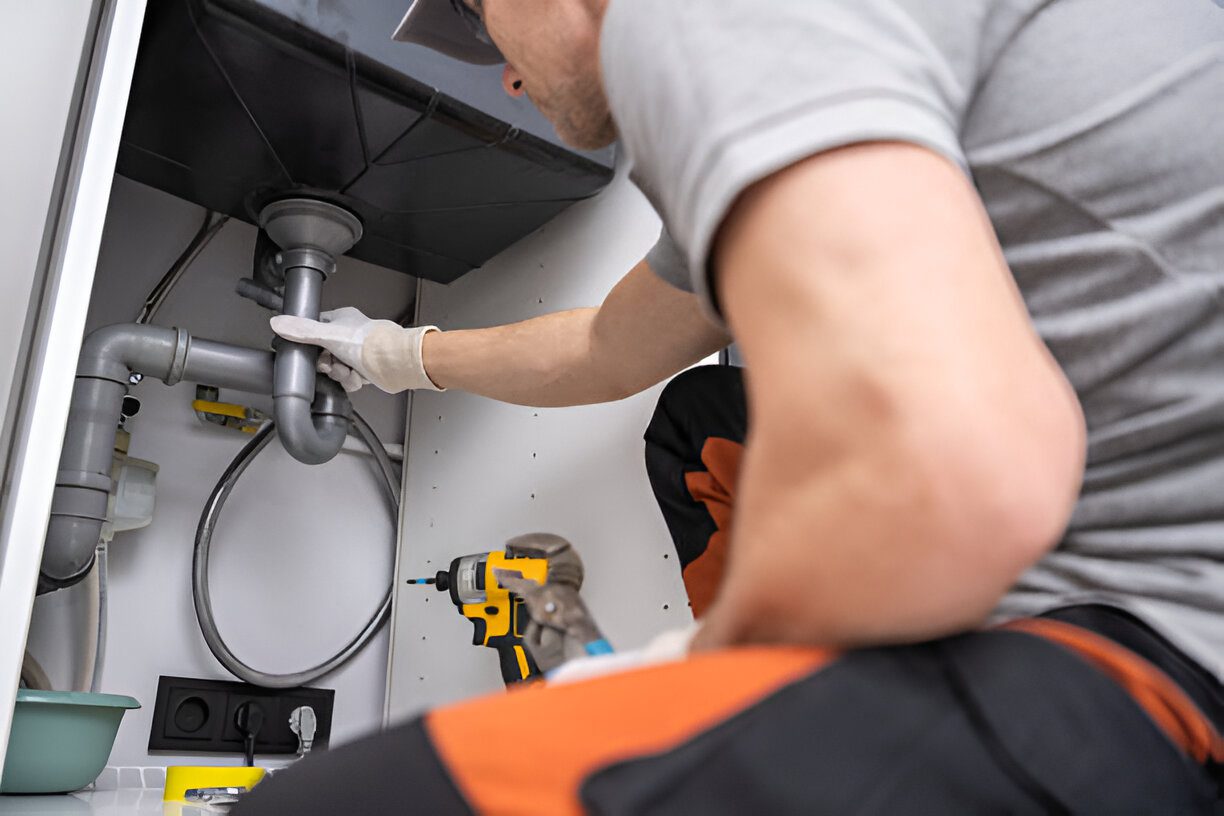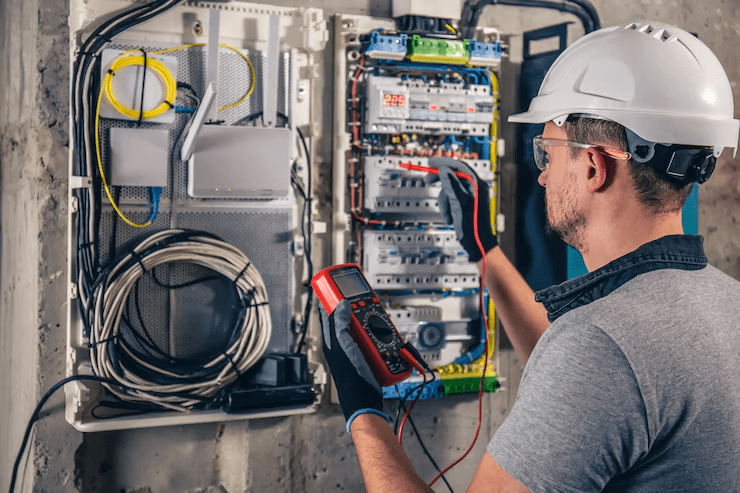Introduction
Maintaining healthy drains is essential for the overall functionality of your home’s plumbing system. When issues like clogs or slow drains arise, homeowners often hear the terms “drain cleaning” and “drain clearing.” While these services may sound similar, they serve distinct purposes and address different plumbing challenges.
Understanding the difference between drain clearing and drain cleaning can help you choose the right service for your plumbing needs. This guide explains each process, the tools and techniques involved, and when to opt for professional assistance.
What is Drain Clearing?
Definition of Drain Clearing
Drain clearing is a quick and targeted approach to remove blockages and restore the flow of water in your pipes. It focuses on addressing immediate issues, such as clogs caused by food scraps, hair, or grease. However, drain clearing typically provides only a temporary solution, as it doesn’t address the underlying buildup or structural problems in the plumbing system.
Think of drain clearing as a band-aid fix to keep your plumbing functional until a more comprehensive solution is applied. It is highly effective for urgent situations where water flow needs to be restored quickly.
Tools Used in Drain Clearing
The primary tool used in drain clearing is a drain snake or auger. These devices are designed to physically break up or dislodge blockages within the pipe:
- Manual Snakes: Ideal for minor clogs in sinks and bathtubs, manual snakes are lightweight and easy to operate for surface-level issues.
- Motorized Augers: Used for more stubborn blockages in toilets and main sewer lines. These devices are powerful and can handle deeper or more complex clogs.
- Plungers: Useful for localized blockages in toilets or sinks. Plungers work by creating suction and pressure to dislodge obstructions.
Other methods may include blow bags or pressurized air devices, which can force water through the blockage to clear it. Each tool has its specific application, depending on the nature and location of the clog.
Typical Situations for Drain Clearing
Drain clearing is most effective for:
- Kitchen Sink Clogs: Caused by grease, food waste, and soap residue that accumulate over time.
- Toilet Blockages: Resulting from excess toilet paper or non-flushable items like wipes and hygiene products.
- Shower and Bathtub Drains: Often clogged with hair and soap scum that restrict water flow.
These common clogs are usually localized, making drain clearing a quick and effective solution. However, if these issues recur frequently, it may indicate a deeper problem requiring a more thorough cleaning.
What is Drain Cleaning?
Definition of Drain Cleaning
Drain cleaning is a comprehensive service designed to remove buildup, eliminate recurring clogs, and restore the overall health of your plumbing system. Unlike drain clearing, which focuses on removing immediate blockages, drain cleaning addresses the root causes of poor drainage, such as grease accumulation, mineral deposits, or invasive tree roots.
Drain cleaning ensures your pipes are thoroughly cleaned and less prone to future issues, offering a long-term solution for plumbing maintenance. It’s ideal for homeowners who want to prevent problems before they escalate into major repairs.
Techniques for Drain Cleaning
Professional plumbers use advanced techniques and equipment to perform drain cleaning, including:
- Hydro Jetting: A high-pressure water jet is used to blast away grease, debris, and even tree roots. This method is highly effective for restoring pipe functionality and is environmentally friendly.
- Chemical Treatments: Eco-friendly solutions can dissolve organic buildup without damaging pipes. These treatments are a safer alternative to harsh over-the-counter chemicals.
- Video Inspections: Cameras are used to identify problem areas before cleaning begins, ensuring targeted and efficient service. This diagnostic approach helps plumbers understand the exact cause of the issue.
These methods go beyond clearing blockages by thoroughly cleaning the interior of the pipes, ensuring long-term effectiveness and reliability.
When to Opt for Drain Cleaning
Drain cleaning is recommended for:
- Recurring Clogs: If blockages persist despite regular clearing, it’s time for a deeper clean.
- Slow Drains: Indicating buildup along the pipe walls that restricts water flow.
- Preventive Maintenance: Regular cleaning can extend the life of your plumbing system and reduce the likelihood of costly repairs.
By addressing the underlying causes of drainage issues, drain cleaning provides a more sustainable solution than clearing alone.
Key Differences Between Drain Clearing and Drain Cleaning
Purpose
- Drain Clearing: Focuses on immediate relief by removing blockages to restore water flow temporarily. It’s a reactive solution for urgent problems.
- Drain Cleaning: Provides long-term solutions by addressing buildup and restoring the health of the plumbing system. It’s a proactive approach to maintaining optimal performance.
Tools and Techniques
- Drain Clearing: Relies on snakes, augers, and plungers to dislodge or push through clogs. These tools are effective for surface-level issues but may not fully remove buildup.
- Drain Cleaning: Utilizes advanced techniques like hydro jetting, chemical treatments, and video inspections for thorough cleaning. These methods ensure pipes are free of debris and buildup.
Results
- Drain Clearing: Solves surface-level issues but may not prevent future clogs. It’s a quick fix that doesn’t address the root cause.
- Drain Cleaning: Targets the root causes, improving the overall performance and longevity of your pipes. It ensures a comprehensive and lasting solution.
Understanding these differences can help you choose the most effective service for your specific plumbing needs.
Which Service is Right for You?
Signs You Need Drain Clearing
You may require drain clearing if:
- One-Off Clogs: Blockages caused by food waste, hair, or small debris. These are typically isolated incidents.
- Localized Issues: Problems are confined to a single fixture, such as a kitchen sink or toilet.
- Quick Fix Needed: Temporary relief is required while waiting for a comprehensive service.
Drain clearing is a cost-effective solution for minor plumbing issues that don’t require extensive intervention.
Signs You Need Drain Cleaning
Drain cleaning is the better choice when:
- Recurring Blockages: Clogs keep returning despite repeated clearing efforts.
- Foul Odors: Persistent smells emanate from drains due to buildup or trapped debris.
- Slow Drains: Water takes longer to drain across multiple fixtures, indicating systemic issues.
- Homewide Issues: Slow drainage or blockages occur in multiple areas of the home, suggesting a deeper problem.
Regular drain cleaning can prevent small issues from escalating into major plumbing problems, saving you time and money in the long run.
Professional Assessment
If you’re unsure which service to choose, consult a professional plumber. They can assess your plumbing system using video inspections or other diagnostic tools to determine the best approach. A tailored solution ensures effective and efficient results.
Preventive Measures for Healthy Drains
Regular Maintenance Tips
- Use Eco-Friendly Cleaning Solutions: Monthly treatments with baking soda, vinegar, or commercial eco-friendly cleaners can prevent buildup and odors.
- Flush Drains with Hot Water: Regularly pour boiling water down drains to dissolve grease and soap scum.
- Install Drain Screens: Prevent debris like hair and food particles from entering your pipes.
These simple practices can keep your drains functioning optimally between professional services.
Avoiding Common Drain Issues
- Dispose of Grease Properly: Pouring grease down the drain can lead to severe blockages. Instead, collect grease in a container and dispose of it in the trash.
- Use Garbage Disposals Correctly: Avoid overloading disposals or grinding fibrous materials like celery, which can tangle and clog the blades.
- Flush Only Toilet Paper: Non-flushable items like wipes, hygiene products, and paper towels can cause clogs and damage pipes.
Awareness and proper usage are key to maintaining a healthy plumbing system and avoiding unnecessary repairs.
Scheduling Annual Drain Cleaning
Preventive maintenance through annual drain cleaning can:
- Extend Pipe Lifespan: Reducing buildup minimizes wear and tear, ensuring your pipes last longer.
- Avoid Emergency Repairs: Early intervention prevents costly and inconvenient plumbing failures.
- Enhance Water Flow: Clean pipes improve the efficiency of your plumbing system, reducing water pressure issues.
Regular professional care ensures your drains remain in top condition year-round, giving you peace of mind.
FAQs
How often should I schedule drain cleaning?
For most homes, scheduling drain cleaning once a year is sufficient. However, households with frequent plumbing issues or high usage may benefit from more frequent cleanings.
Can I use chemical drain cleaners instead of professional services?
Over-the-counter chemical cleaners can provide temporary relief but may damage pipes over time. Professional services use safe and effective methods to clean drains without causing harm.
What is hydro jetting, and is it safe for all pipes?
Hydro jetting uses high-pressure water to clean pipes thoroughly. It is safe for most modern plumbing systems but may not be suitable for older or fragile pipes. A professional assessment is recommended.
How do I prevent clogs in kitchen sinks?
Avoid pouring grease or oil down the drain, use a strainer to catch food particles, and run hot water after using the sink to clear residue.
What are the warning signs of serious plumbing issues?
Persistent slow drains, frequent backups, foul odors, and gurgling sounds can indicate significant problems requiring professional intervention.
Conclusion
Understanding the difference between drain clearing and drain cleaning is crucial for maintaining a healthy plumbing system. While clearing provides quick relief for localized issues, cleaning offers a comprehensive solution that enhances the long-term performance of your pipes.
Addressing clogs early and investing in regular maintenance can prevent costly repairs and ensure smooth operation. Whether you need immediate assistance or preventive care, professional drain services can help keep your plumbing system in optimal condition.


